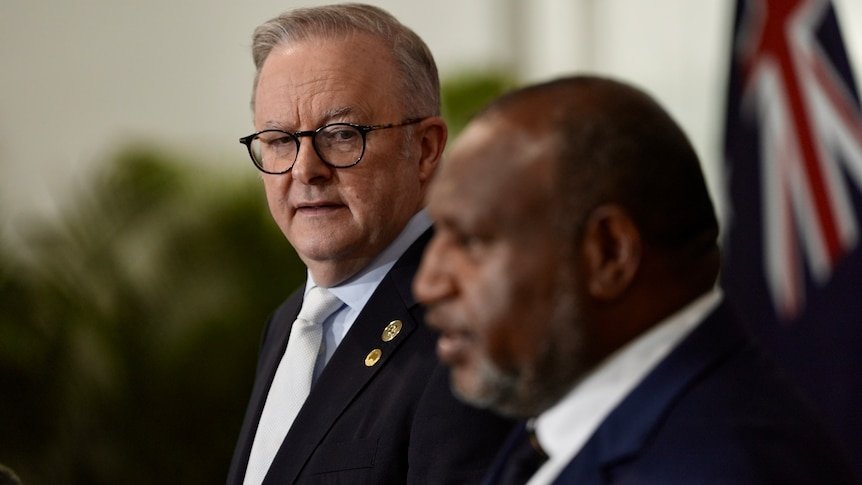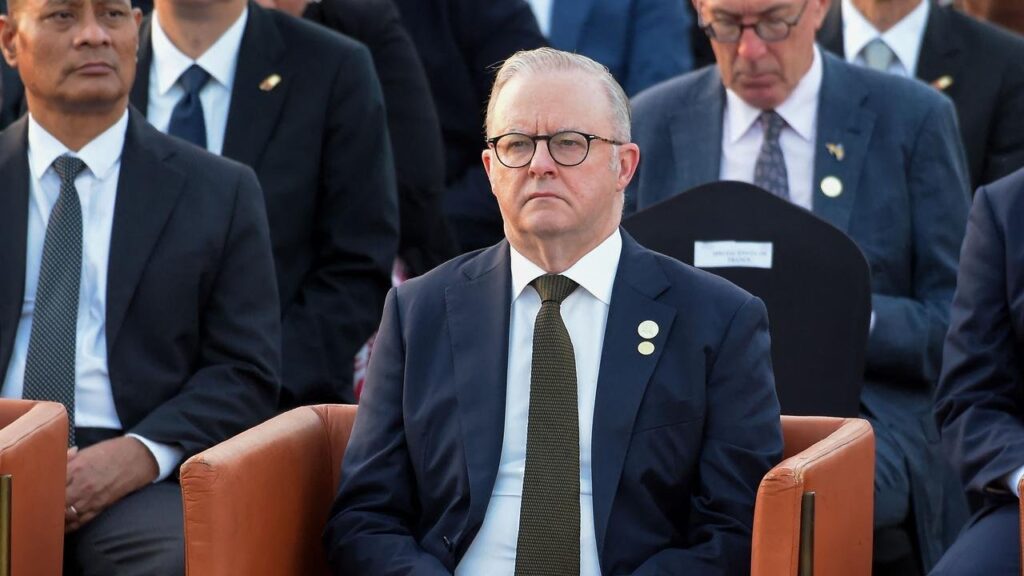Anthony Albanese Suffers Embarrassing Blow as Papua New Guinea Defence Treaty Fails to Materialise
- Prime Minister Anthony Albanese has failed to secure a landmark defence treaty with Papua New Guinea despite high-level talks.
- The treaty, designed to commit Australia and PNG to consult and act together in the event of a security threat, stalled after PNG’s cabinet did not approve the deal.
- Albanese will leave Port Moresby with only a communique, a significant blow to his government’s Pacific diplomacy efforts.
- The failed deal comes after the Albanese government agreed to fund PNG’s $600 million NRL team and a new ministerial wing in PNG’s Parliament.
Anthony Albanese has suffered a major embarrassment after failing to secure a highly anticipated defence treaty with Papua New Guinea. The Prime Minister had hoped to conclude the treaty during his visit to Port Moresby, but it appears the deal has stalled.
According to PNG Foreign Minister Justin Tkatchenko, the cabinet approval is still a “work in progress”. The delay represents a significant blow to Mr Albanese, who had hoped to elevate the defence relationship between the two nations.
In a statement, Mr Albanese said that PNG and Australia had agreed “on the text” of a mutual defence treaty, which the PNG cabinet will consult. However, the signing of the treaty did not eventuate, with the PNG cabinet unable to achieve a quorum earlier in the week.
Mr Albanese told Sky News that the quorum had not been reached because PNG’s politicians were “off celebrating” their nation’s 50th anniversary of independence. “They all went to their respective homelands and so they didn’t have quorum at the cabinet meeting and that’s understandable,” he said.

The failed deal comes after the Albanese government agreed to fund PNG’s $600 million NRL team and a new ministerial wing in PNG’s Parliament. Defence Industry Minister Pat Conroy refused to reveal the exact cost of the diplomatic offering, saying only that it was a “fitting 50th anniversary present” for PNG.
The communique signed by the two leaders acknowledges the commitment to mutual security and sovereignty, but it falls short of the landmark defence treaty that Mr Albanese had hoped to secure.
The failure to secure the treaty is a significant setback for Mr Albanese’s government, which has been seeking to strengthen its relationships with Pacific Island nations in the face of growing Chinese influence in the region.

